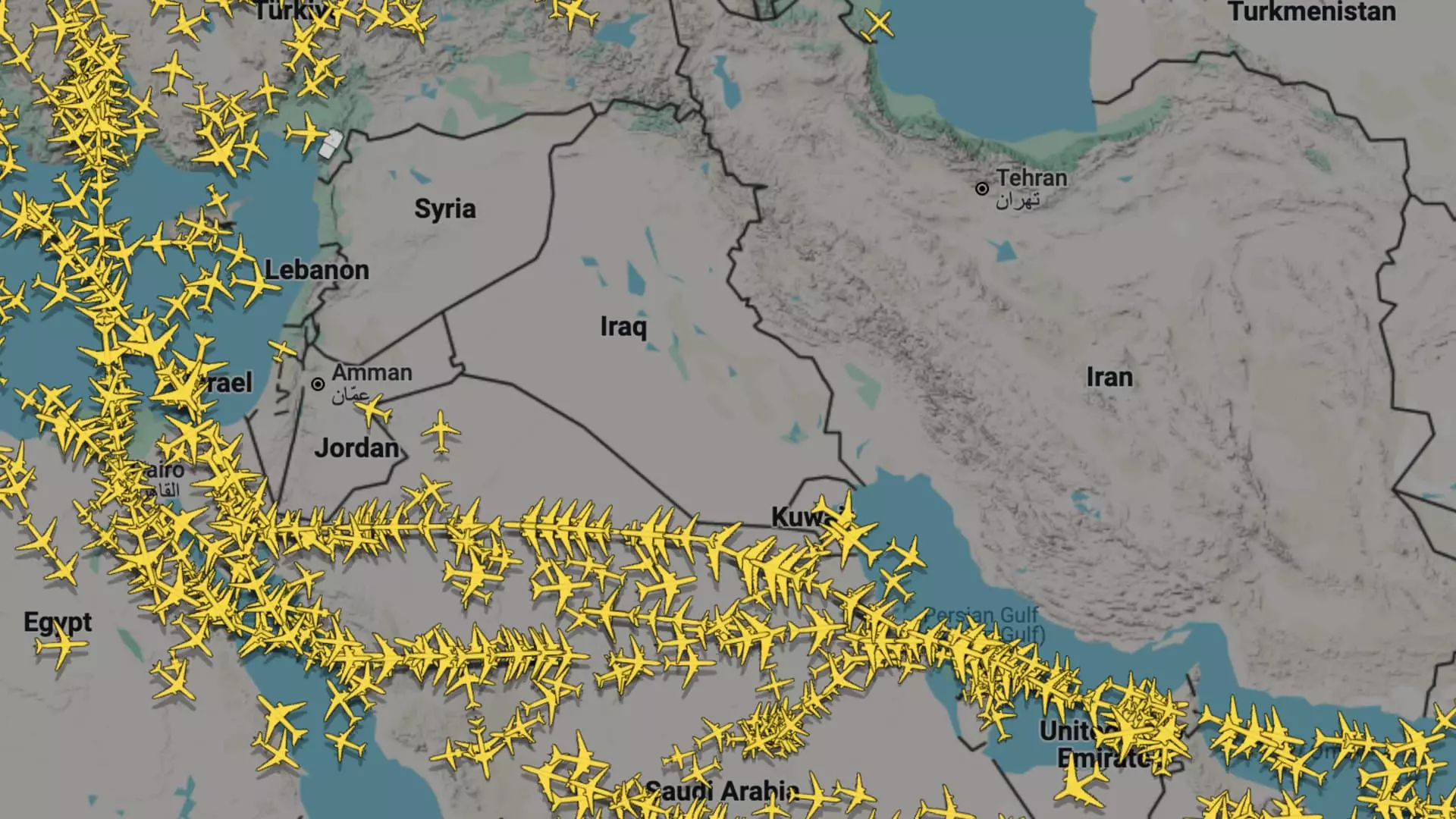The recent uptick in tensions in the Middle East has resulted in a dramatic shift in air travel patterns, particularly concerning Israel. Major airlines like Delta and United have swiftly suspended their flights to Tel Aviv following Israel’s military operations aimed at Iran. This decision, though perhaps pragmatic from a safety perspective, raises significant questions about the broader implications of such cancellations, both for travelers and for the evolving dynamics of air travel globally.
Economic and Social Fallout on Travelers
The immediate consequences of these flight cancellations extend well beyond the operational suspensions. Passengers who had planned trips to Israel are now grappling with uncertainty and confusion. Delta recently encouraged customers to seek accommodation as flights to Ben Gurion Airport became elusive. What does this mean for tourism in Israel, a country that thrives on international visitors? The economic repercussions could be devastating. Tourist-related businesses, many of which rely heavily on foreign travelers, are now teetering on the brink of crisis.
The message is stark: airlines are willing to abandon profitable routes at the first hint of trouble. This introduces a troubling precedent regarding customer loyalty and safety; it demonstrates how quickly corporate confidence can dissolve when geopolitical tensions flare. Travelers are left feeling like collateral damage in a larger game, their plans upended without warning.
Complex Geopolitical Implications
On the geopolitical front, the reaction of airlines to the Merrill tension highlights a worrying trend. The increased risk perception among airlines leads to a vicious cycle; higher travel risks effectively isolate nations by reducing access. When airlines choose to sidestep Israeli airspace, they aren’t just avoiding danger—they inadvertently reinforce the narrative of conflict by making passage to and from Israel more complicated.
For Israel, which has historically been portrayed as isolated amid a sea of discord, this could have severe long-term ramifications. The practical consequences are evident when airlines like Turkish Airlines and Emirates cancel flights not just to Israel but extend suspensions to broader Middle Eastern destinations. Is this a reflection of fear or an indicator of increasing instability? Either way, it suggests a region in turmoil, where air travel becomes a risky endeavor.
Airlines and Corporate Responsibility
The role of airlines in politically charged environments cannot be understated. These companies wield considerable power, capable of impacting economies and perceptions within nations. Their decisions are often framed as business-focused; however, one must scrutinize the greater moral implications. Are carriers prioritizing profits over ethical stances? In a world where corporate responsibility is increasingly paramount, it is disconcerting to see such rapid withdrawal from challenging markets without robust support systems for travelers or affected families.
As citizens, we rely on these airlines, not only for the physical transport they provide but also for their commitment to maintaining dialogue and connection across borders. To see them retreat amid conflict highlights a fundamental issue: air travel is not just a commodity—it is deeply intertwined with human relationships and global unity.
Amid the turmoil, those of us who advocate for liberty and international cooperation must ponder the future of air travel. With airlines pivoting away from contentious areas, those in the center-right liberal spectrum should interrogate how we can foster safer travel and dialogue, ensuring that the world continues to connect even in times of strife.

